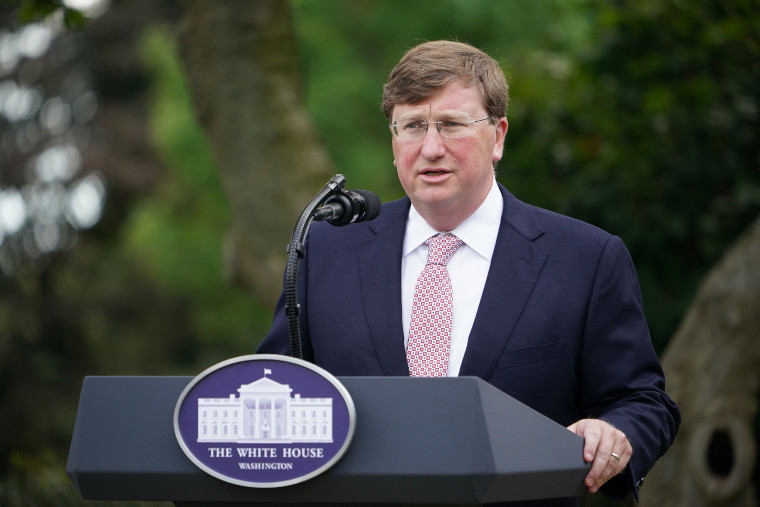Most states realized years ago that Medicaid expansion through the Affordable Care Act is a good deal, but as things stand, there are still 12 holdouts. As a result, there are more than 2 million low-income Americans who don't have health coverage.
The Democrats' American Relief Plan hopes to reduce that number -- ideally to zero. The Washington Post reported yesterday:
Florida and the 11 other states, most of them across the South, are the intended audience for a few paragraphs deep in the 630-page American Relief Plan. The legislation offers a novel and generous financial incentive to states if they agree to open Medicaid to more poor people and some in the working class. The White House has embraced the incentive, designed in Congress. It will pose an early test of Biden's powers of persuasion as he tries to make good on his pledge to close the nation's considerable gaps in insurance and health care — gaps the pandemic has thrown into vivid light.
This may sound a little complicated, but the offer is straightforward: under the ACA, the federal government already covers 90% of the costs of expanding Medicaid. As Vox recently explained, the Democrats' new COVID relief package ups the ante: "[N]ewly expanding states would also receive a 5 percent bump in the federal funding match for their traditional Medicaid programs for two years. Because the traditional Medicaid population is significantly larger than the expansion population, the funding bump is projected to cover a state's 10 percent match for expansion enrollees and then some over those two years."
It led Jon Chait to joke, "Now states taking the Medicaid expansion would have more than 100 percent of the cost covered by Washington. They would literally have to pay for the privilege of denying coverage to their poorest citizens."
If any state should take advantage of such an opportunity, it's Mississippi, not only because of its financial difficulties -- the Magnolia State is the nation's poorest -- but also because of its high uninsured rate. Since Mississippi would be in a position to actually make money by embracing Medicaid expansion, this seems like an obvious call.
But it's not quite working out that way. As Mother Jones noted yesterday, Gov. Tate Reeves (R) isn't budging.
"My position has not changed. I am opposed to expanding Medicaid in Mississippi," Gov. Reeves said during a press conference covered by the Mississippi Free Press. When asked by Vox if the prospect of additional funding might make him reconsider his opposition to Medicaid expansion, Reeves said, "No, sir, it will not."
In an interview with Mississippi Today, Senate Public Health Committee Chair Hob Bryan (D) added that there "will be more money in the state treasury if we expand Medicaid than if we don't."
At least for now, that doesn't appear to be changing the calculus. As a result, between 200,000 and 300,000 low-income state residents will continue to go without coverage.
Of course, Mississippi isn't the only state that stands to benefit by taking advantage of the new offer, though as things stand, it's not yet clear if any of the 12 holdouts will accept the deal.

